Search titles
Displaying results 51 to 60 of 63.
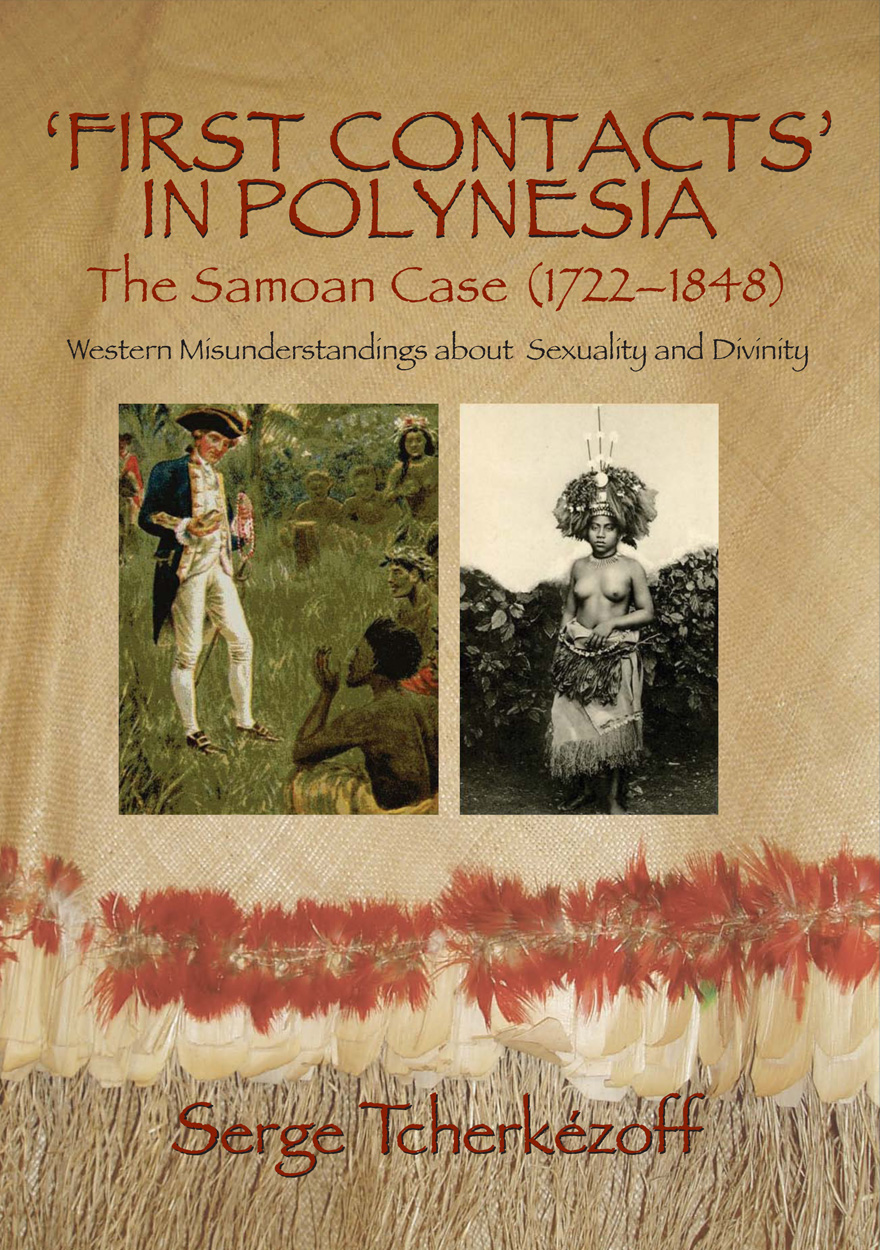
First Contacts in Polynesia »
The Samoan Case (1722–1848) Western Misunderstandings about Sexuality and Divinity
Authored by: Serge Tcherkézoff
Publication date: August 2008
This book explores the first encounters between Samoans and Europeans up to the arrival of the missionaries, using all available sources for the years 1722 to the 1830s, paying special attention to the first encounter on land with the Lapérouse expedition. Many of the sources used are French, and some of difficult accessibility, and thus they have not previously been thoroughly examined by historians. Adding some Polynesian comparisons from beyond Samoa, and reconsidering the so-called ‘Sahlins-Obeyesekere debate’ about the fate of Captain Cook, ‘First Contacts’ in Polynesia advances a hypothesis about the contemporary interpretations made by the Polynesians of the nature of the Europeans, and about the actions that the Polynesians devised for this encounter: wrapping Europeans up in ‘cloth’ and presenting ‘young girls’ for ‘sexual contact’. It also discusses how we can go back two centuries and attempt to reconstitute, even if only partially, the point of view of those who had to discover for themselves these Europeans whom they call ‘Papalagi’. The book also contributes an additional dimension to the much-touted ‘Mead-Freeman debate’ which bears on the rules and values regulating adolescent sexuality in ‘Samoan culture’. Scholars have long considered the pre-missionary times as a period in which freedom in sexuality for adolescents predominated. It appears now that this erroneous view emerged from a deep misinterpretation of Lapérouse’s and Dumont d’Urville’s narratives.
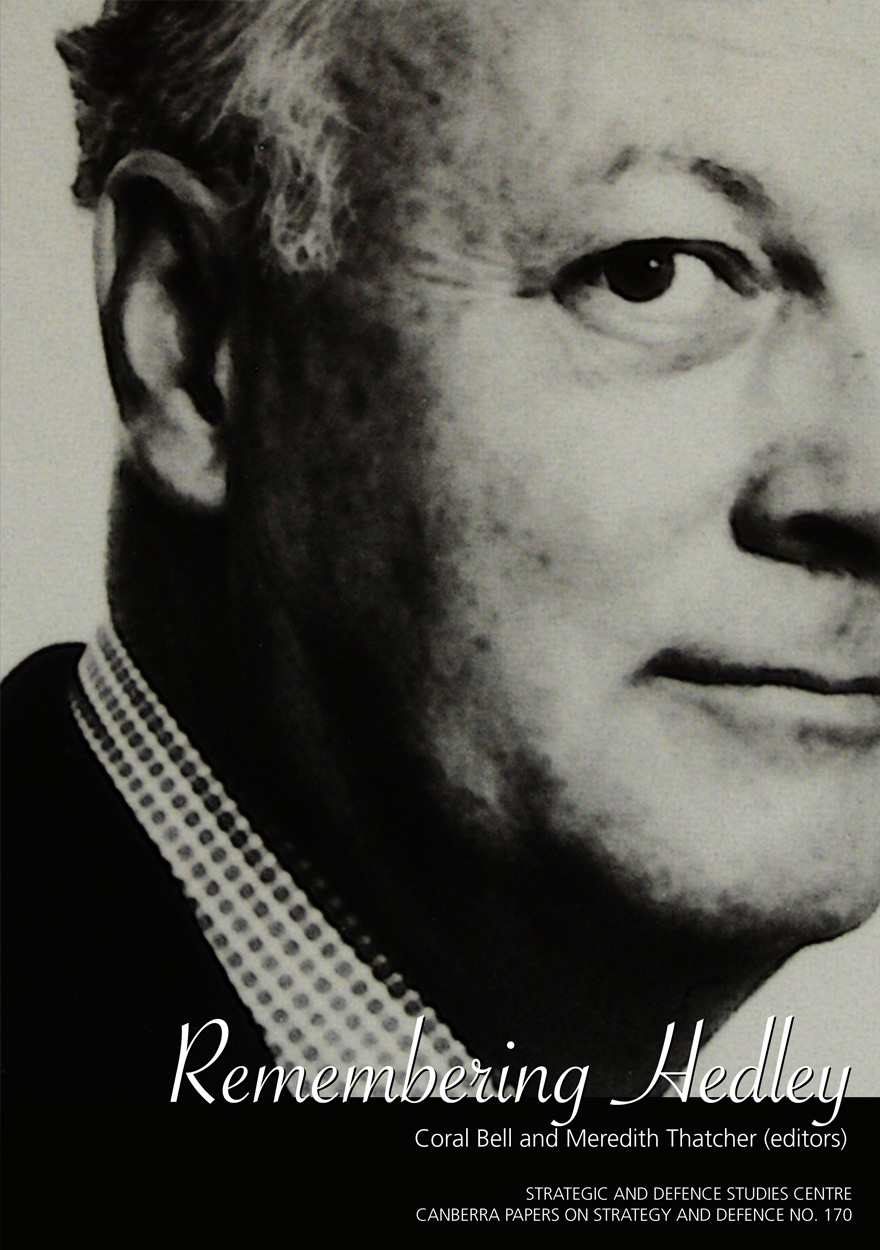
Remembering Hedley »
Edited by: Coral Bell, Meredith Thatcher
Publication date: August 2008
Remembering Hedley commemorates the life of Hedley Bull (1932–85), a pivotal figure in the fields of international relations and strategic studies. Its publication coincides with the official opening on 6 August 2008 of the Hedley Bull Centre at The Australian National University in Canberra.
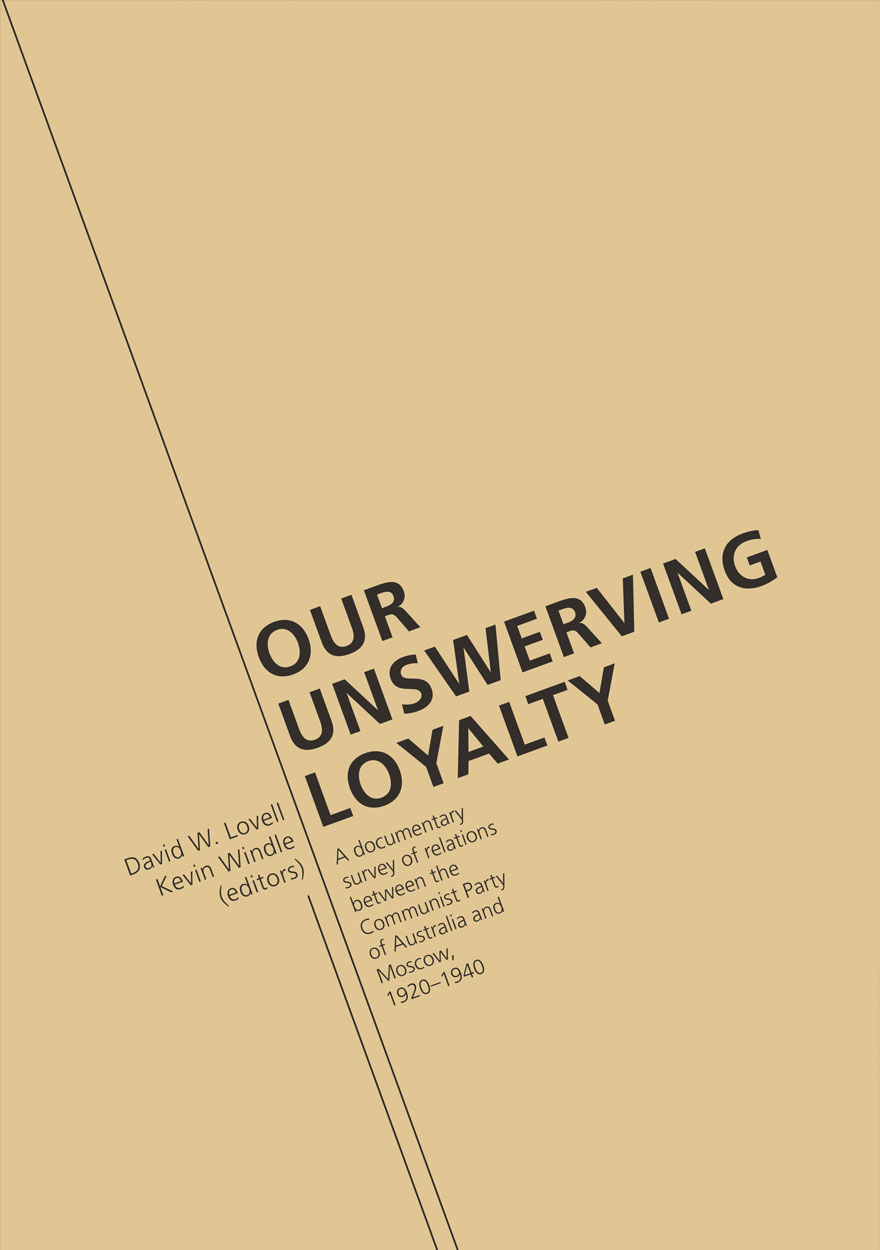
Our Unswerving Loyalty »
A documentary survey of relations between the Communist Party of Australia and Moscow, 1920–1940
Edited by: David W. Lovell, Kevin Windle
Publication date: August 2008
The story of the Communist Party of Australia has been told in various ways. Until now, however, archival collections that have borne on this story have been relatively inaccessible to the ordinary, interested reader. This book begins to redress that deficiency by bringing together 85 key documents from the Russian State Archives of Social and Political History (RGASPI), selected from a collection of thousands of documents concerning the relations between the Communist International and the Communist Party of Australia. The selection focuses on the relationship between the CPA and the Comintern because the activities of the CPA are essentially incomprehensible without understanding the international communist context within which the CPA operated. That context was dominated by the newly-created Soviet state and its decision to authorize and utilize a network of communist parties throughout the world.
The documents in this work suggest three major propositions about the relationship between the CPA and the Comintern. First, that the Comintern was crucial in the formation of the CPA, via its emissaries, instructions and authority. Second, that the Comintern played a major role in directing the policies of the CPA in domestic matters (not to mention in international matters, where the Comintern’s decisions were supreme). And third, that the leadership of the CPA was, from 1929 onwards, shaped, trained and authorized by the Comintern. With access to the documents, readers now have a chance not just to hear the voices of the times, but to make their own judgements about the relationship between the CPA and Moscow.
The book also includes two extended introductory essays that outline the development of the Comintern and its relations with the CPA, as well as supporting materials that provide information on individuals, organizations and tactics mentioned within the documents themselves.
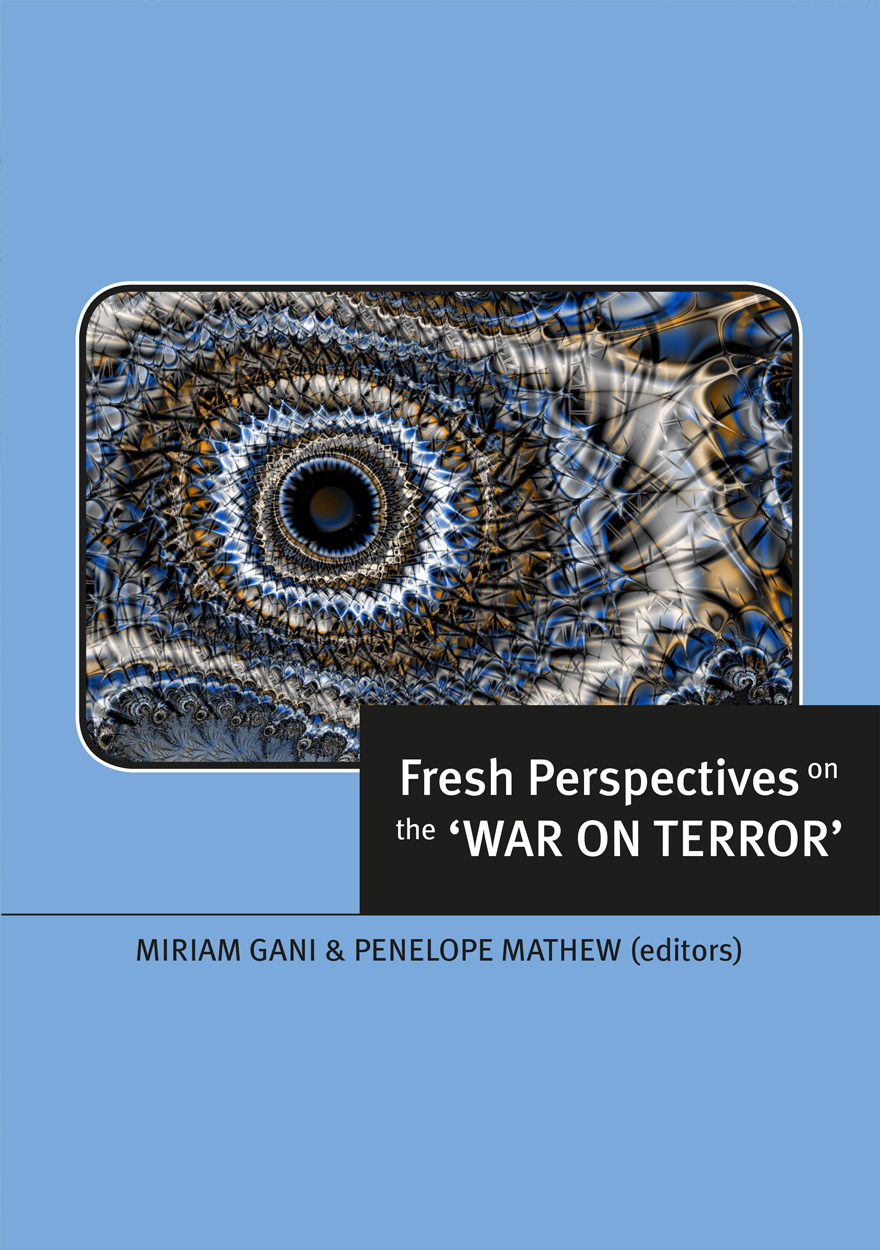
Fresh Perspectives on the "War on Terror" »
Edited by: Miriam Gani, Penelope Mathew
Publication date: July 2008
On 20 September 2001, in an address to a Joint Session of Congress and the American people, President George W Bush declared a ‘war on terror’. The concept of the ‘war on terror’ has proven to be both an attractive and a potent rhetorical device. It has been adopted and elaborated upon by political leaders around the world, particularly in the context of military action in Afghanistan and Iraq. But use of the rhetoric has not been confined to the military context. The ‘war on terror’ is a domestic one, also, and the phrase has been used to account for broad criminal legislation, sweeping agency powers and potential human rights abuses throughout much of the world.
This collection seeks both to draw on and to engage critically with the metaphor of war in the context of terrorism. It brings together a group of experts from Australia, Canada, the United Kingdom, France and Germany who write about terrorism from a variety of disciplinary perspectives including international law and international relations, public and constitutional law, criminal law and criminology, legal theory, and psychology and law.
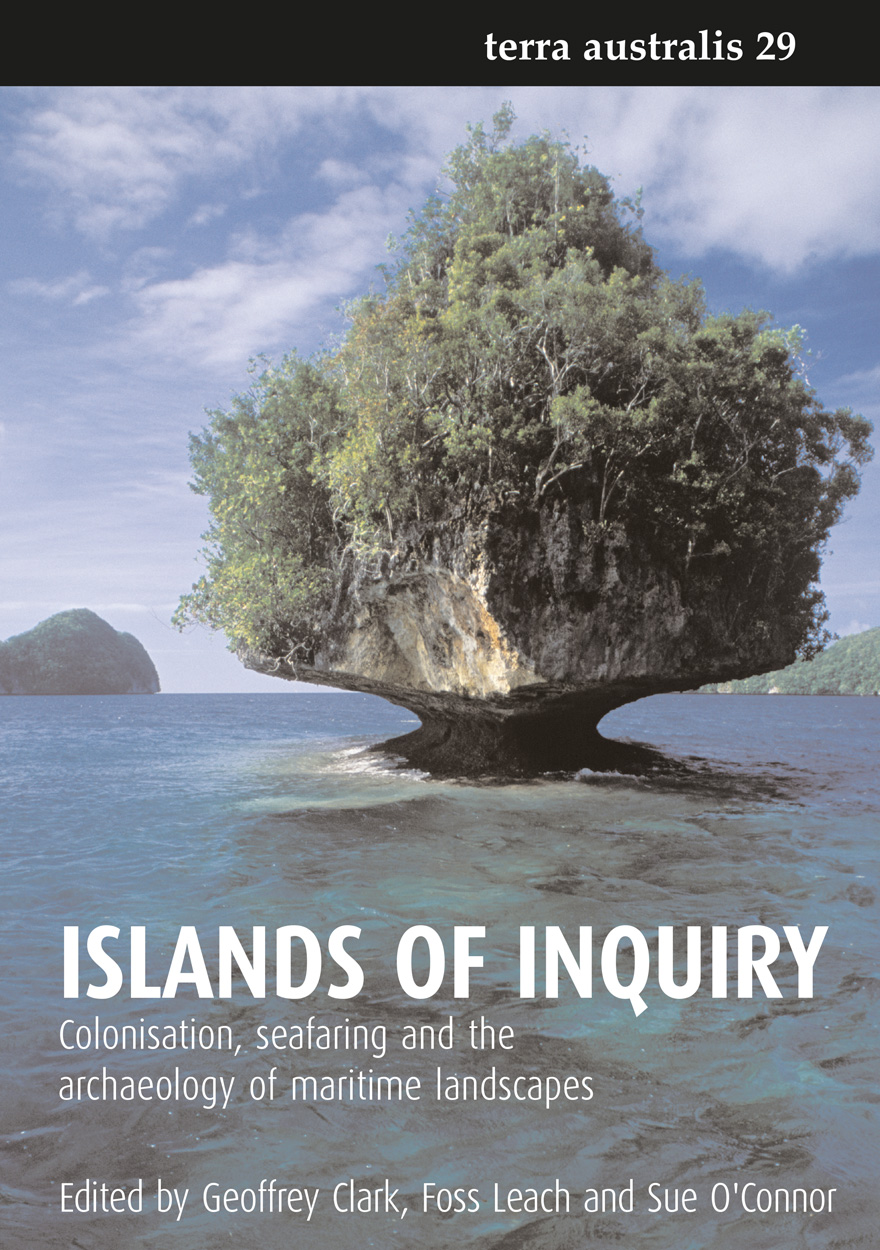
Islands of Inquiry »
Colonisation, seafaring and the archaeology of maritime landscapes
Edited by: Geoffrey Clark, Foss Leach, Sue O'Connor
Publication date: June 2008
This collection makes a substantial contribution to several highly topical areas of archaeological inquiry. Many of the papers present new and innovative research into the processes of maritime colonisation, processes that affect archaeological contexts from islands to continents. Others shift focus from process to the archaeology of maritime places from the Bering to the Torres Straits, providing highly detailed discussions of how living by and with the sea is woven into all elements of human life from subsistence to trade and to ritual. Of equal importance are more abstract discussions of islands as natural places refashioned by human occupation, either through the introduction of new organisms or new systems of production and consumption. These transformation stories gain further texture (and variety) through close examinations of some of the more significant consequences of colonisation and migration, particularly the creation of new cultural identities. A final set of papers explores the ways in which the techniques of archaeological science have provided insights into the fauna of islands and the human history of such places. Islands of Inquiry highlights the importance of an archaeologically informed history of landmasses in the oceans and seas of the world.
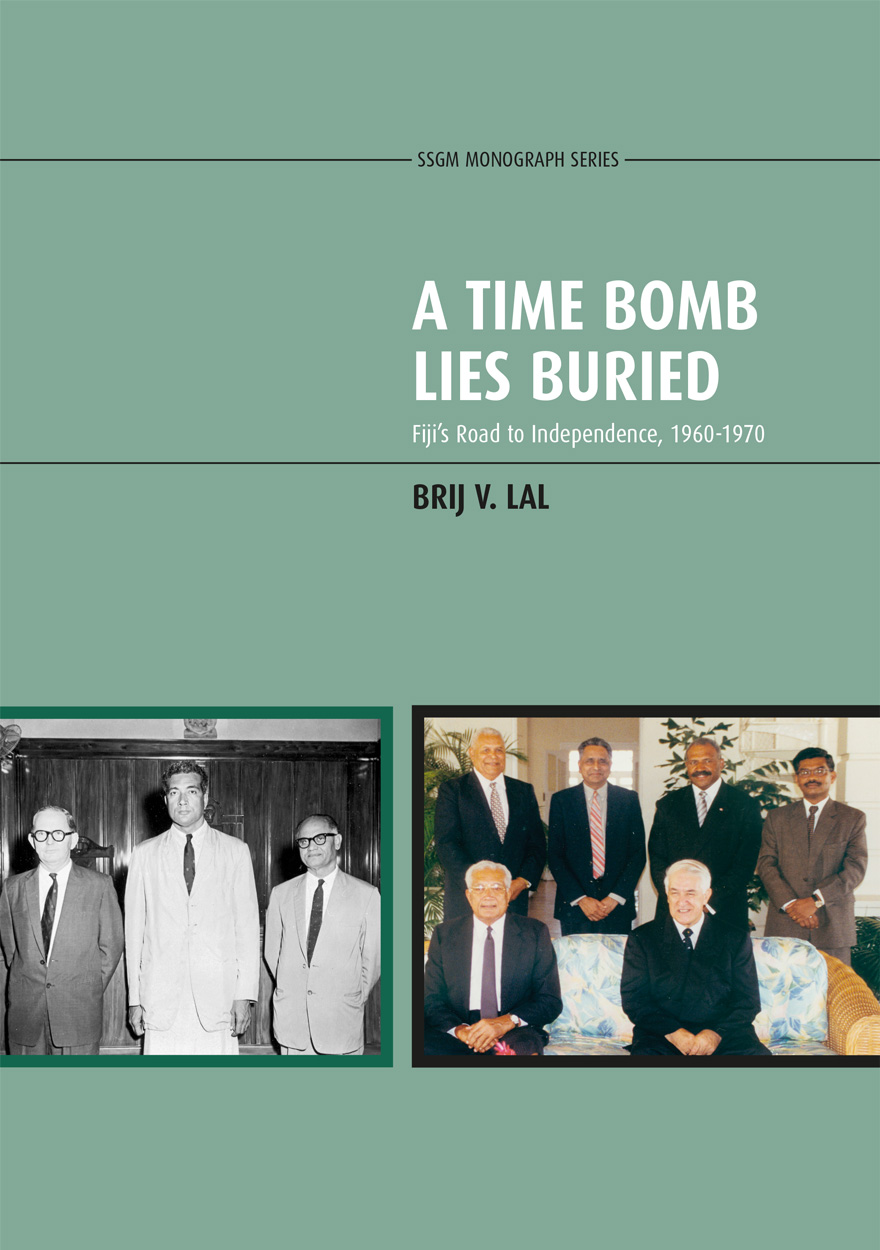
A Time Bomb Lies Buried »
Fiji’s Road to Independence, 1960-1970
Authored by: Brij V. Lal
Publication date: March 2008
A Time Bomb Lies Buried discusses the debates which took place in Suva and London as well as the politics and processes which led Fiji to independence in 1970 after 96 years of colonial rule. It provides an essential background to understanding the crises and convulsions which have haunted Fiji ever since in its search for a constitutional settlement for its multiethnic population.
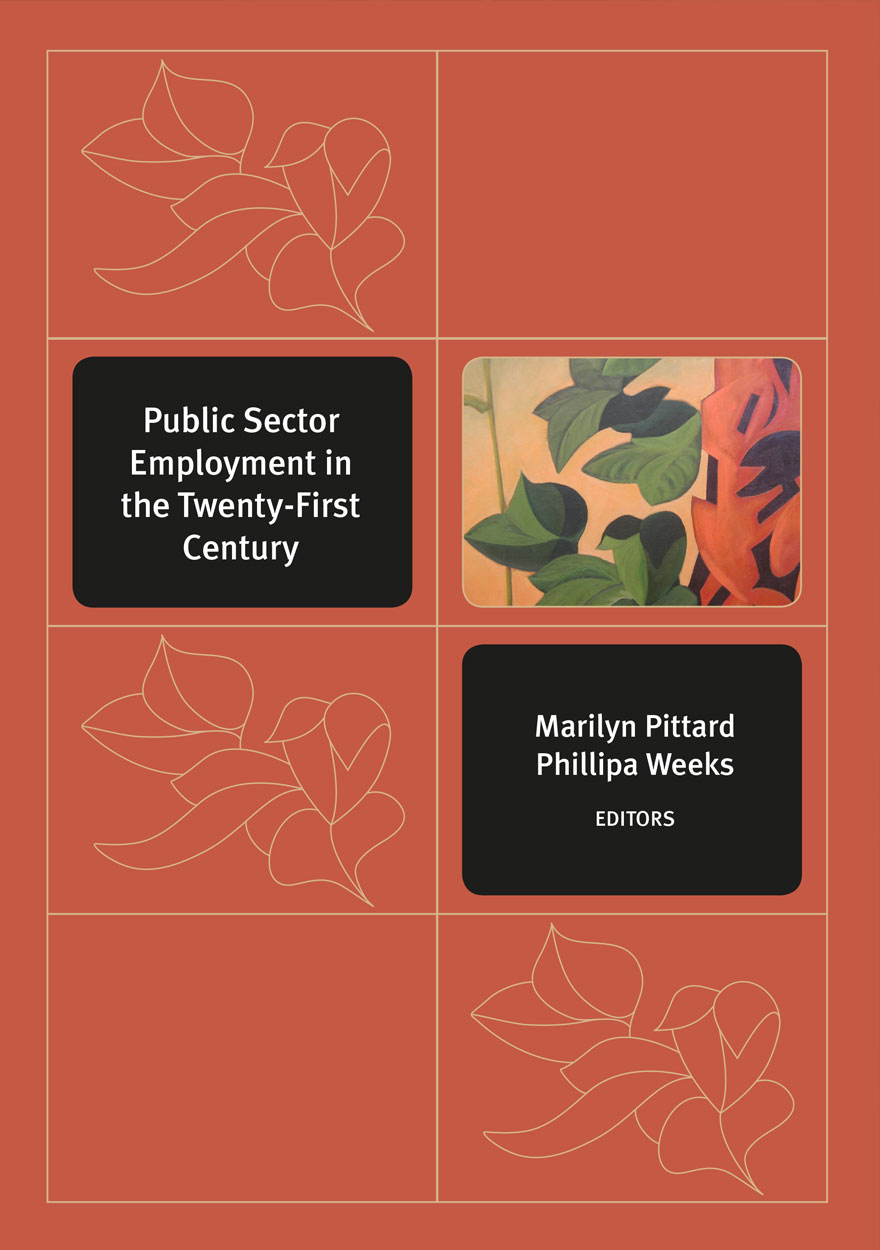
Public Sector Employment in the Twenty-First Century »
Edited by: Marilyn Pittard, Phillipa Weeks
Publication date: November 2007
This book addresses the transformations which have occurred in employment arrangements and practices in the Australian public sector over the past decade and the changes in responsibilities and accountability through employment contracts, whistleblower legislation and partnerships between government and the private sector. It provides a comparative context through studies of reconstruction of the public service in the United Kingdom and New Zealand. Themes of contractualisation, privatisation and outsourcing are explored and critically examined, as well as influences of the industrial relations legislative framework including the Work Choices legislation.
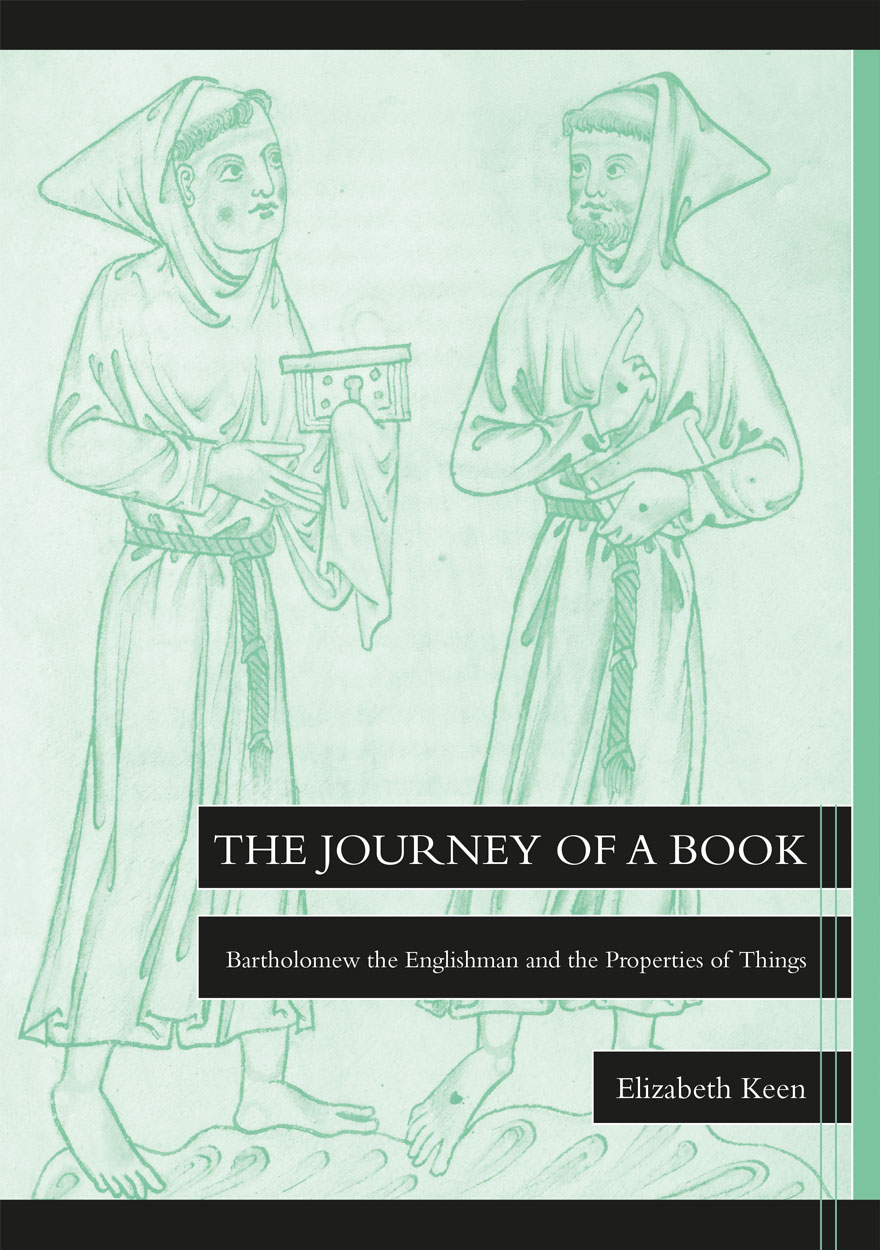
The Journey of a Book »
Bartholomew the Englishman and the Properties of Things
Authored by: Elizabeth Keen
Publication date: June 2007
De proprietatibus rerum, ‘On the properties of things’, has long been referred to by scholars as a medieval encyclopedia, but evidence suggests that it has been many things to many people. The sheer number of extant manuscript copies and printed editions, along with translations, adaptations, and mentions in poems and sermons, testify to its continuous significance for Europeans of all estates and different walks of life, from the thirteenth to the seventeenth centuries. While first compiled soon after the time of St Francis by a humble continental friar to meet the needs of his expanding religious brotherhood, by 1600 English men of letters had claimed Bartholomew as a noble compatriot and national treasure. What was it about the work that propelled it through a progression of medieval cultures and into an exalted position in the world of English letters? This reception history traces evidence for the journey of ‘Properties’ over four centuries of social, political and religious change.
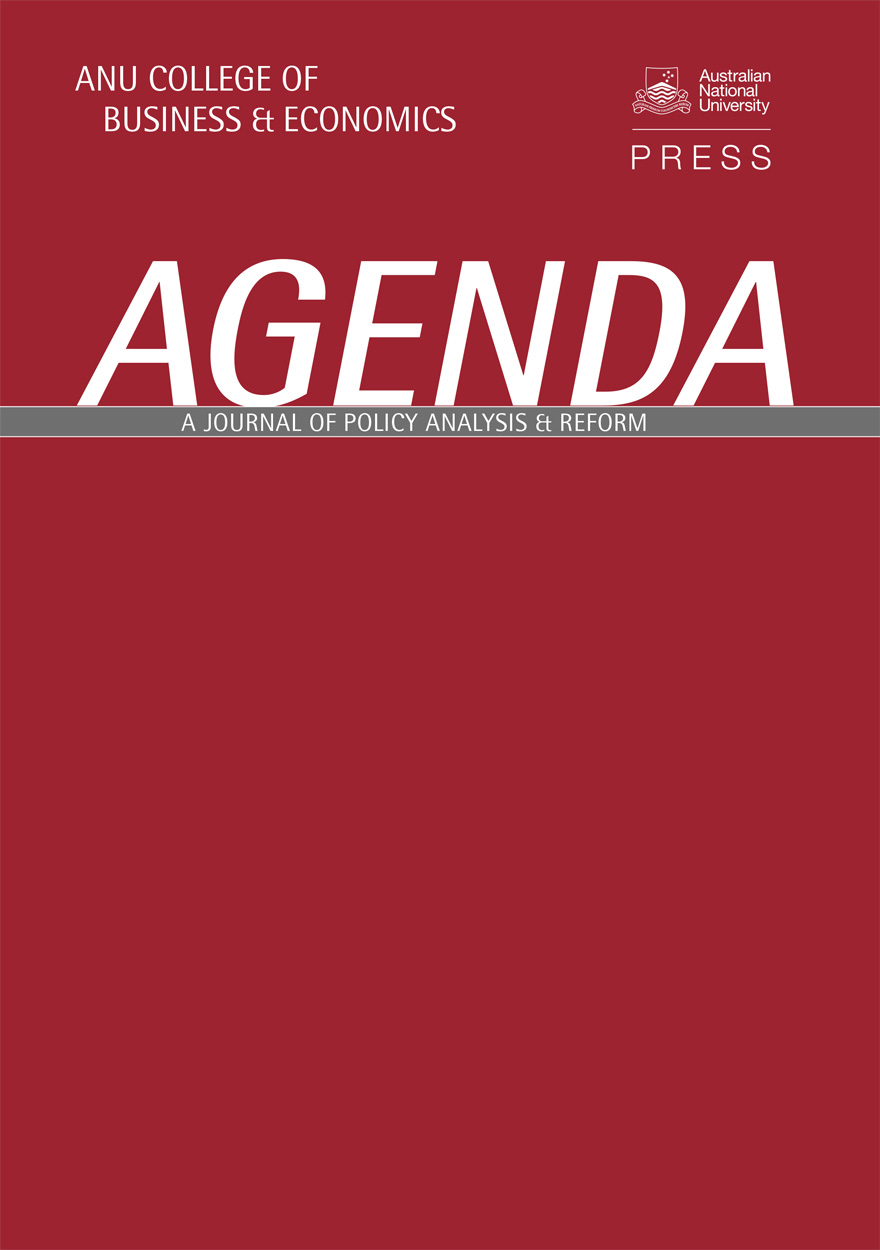
Agenda - A Journal of Policy Analysis and Reform: Volume 12, Number 4, 2005 »
Publication date: April 2007
Agenda is a refereed, ECONLIT-indexed and RePEc-listed journal of the College of Business and Economics, The Australian National University. Launched in 1994, Agenda provides a forum for debate on public policy, mainly (but not exclusively) in Australia and New Zealand. It deals largely with economic issues but gives space to social and legal policy and also to the moral and philosophical foundations and implications of policy.
Subscribe to the Agenda Alerting service if you wish to be advised on forthcoming or new issues.
Download for free
Not available for purchase
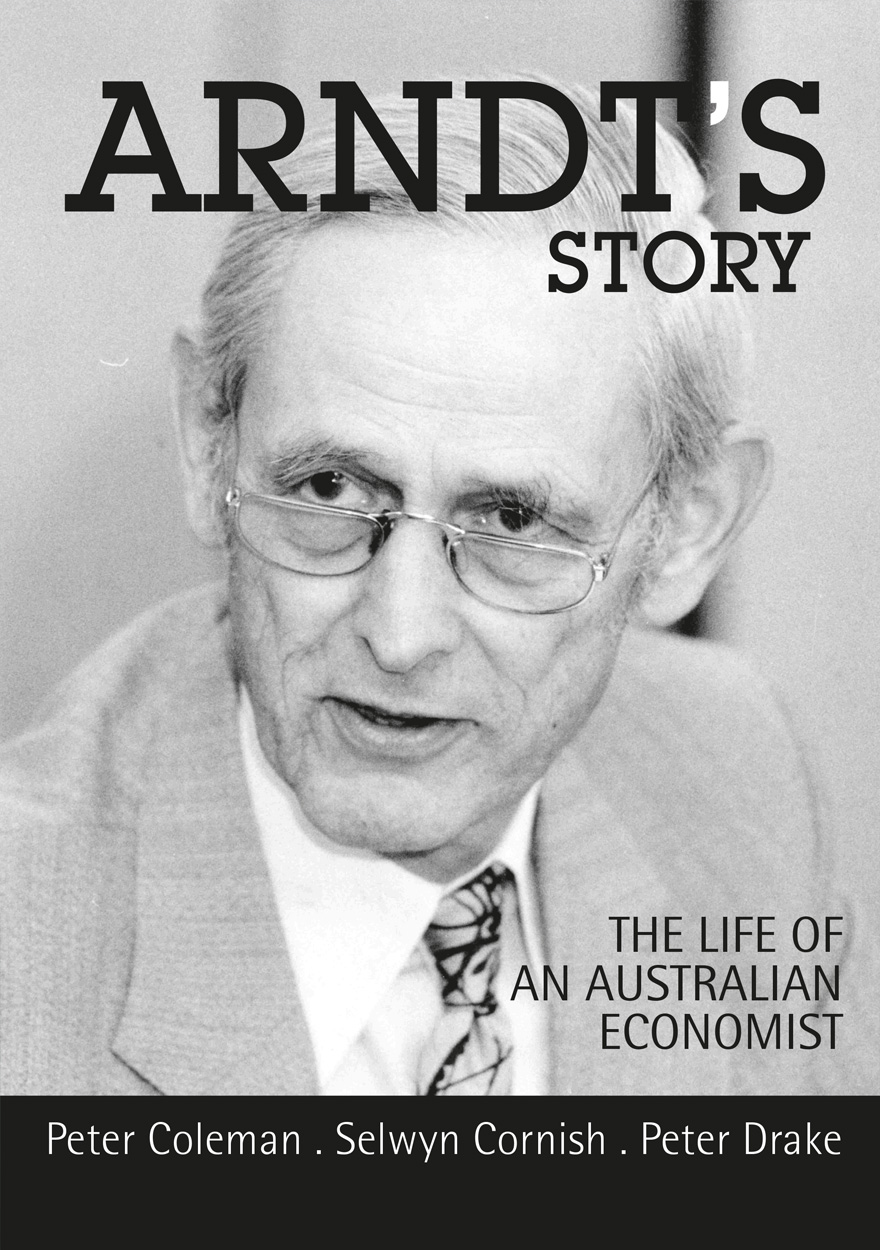
Arndt's Story »
The life of an Australian economist
Authored by: Peter Coleman, Selwyn Cornish, Peter Drake
Publication date: March 2007
‘H.W. Arndt has been Australia’s leading scholar of Asian economic development for over thirty years’
- Former World Bank President James D Wolfensohn.
The year of Heinz Wolfgang Arndt’s birth, 1915, was not a good time for a German boy to be born. His country was soon to be defeated in a great war, his school years were shadowed by the rise of Hitler. Yet when Heinz’s long-buried Jewish background led his academic father to lose his chair in chemistry and flee to Oxford, Heinz followed. As Heinz put it, the calamity of Hitler’s rise to power led him to ‘the incredible good fortune of an Oxford education and a life spent in England and Australia.’
This was a man of inexhaustible energy and optimism, who returned from months behind barbed wire interned in Canada to write a historical classic—The Economic Lessons of the Nineteen-Thirties. He seized the opportunity of an unexpected job offer to set off with his young family for Sydney where he quickly established himself as a leading authority on the Australian banking system, embarked on his fifty year career as a gifted university teacher and enjoyed the first of many vigorous forays as a public intellectual.
But it was at ANU that Heinz took the bold step which led him to become the Grand Old Man of Asian Economics. In 1966, just after the Sukarno coup and the year of living dangerously, he determined the time had come to study the Indonesian economy. It took all his charm, persistence and formidable intellect to persuade the Indonesians to open their doors to him. The result was a world-leading centre of Indonesian economics which greatly contributed to the development of modern Indonesia.



